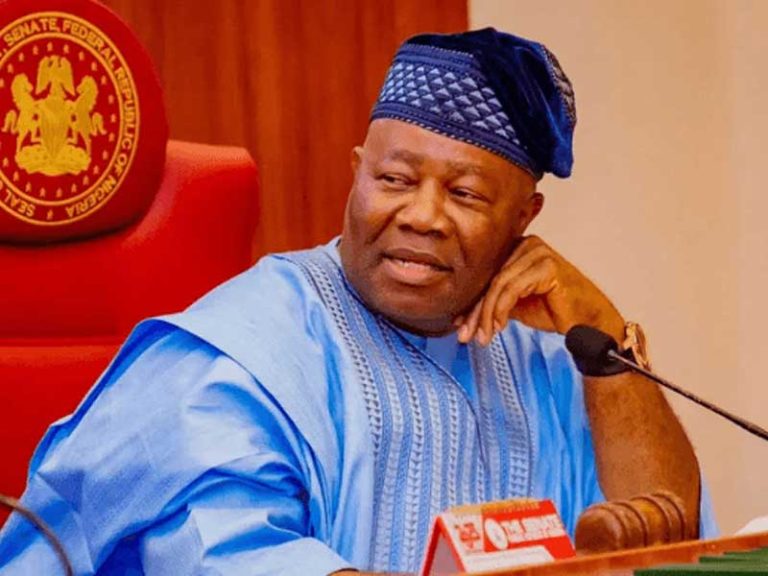Senator Natasha Akpoti-Uduaghan, representing Kogi Central, has found herself at the center of a high-profile controversy that has shaken the Nigerian Senate. Her recent suspension, accusations of sexual harassment against the Senate President, Godswill Akpabio, and her bold international appeal for justice have ignited widespread attention and debate over the conduct and ethics within Nigeria’s upper legislative chamber.
The conflict between Senator Akpoti-Uduaghan and Senate President Akpabio began earlier this year with what appeared to be a disagreement over seating arrangements in the Senate chamber. However, what followed exposed deeper tensions. After an altercation during a plenary session on February 20, the Senate’s ethics committee accused Akpoti-Uduaghan of misconduct. On March 6, the Senate voted to suspend her for six months, effectively cutting her off from all legislative activities, withdrawing her security, closing her office, and barring her from entering the National Assembly premises. Her salary and allowances were also suspended, and she was prohibited from presenting herself as a senator both domestically and internationally.
What truly drew national and international attention, however, was her response. In a scathing and satirical open letter posted to her official Facebook page, Senator Akpoti-Uduaghan mocked the Senate’s decision and turned the spotlight on what she described as a toxic and patriarchal culture at the heart of Nigeria’s legislature. With “deepest sarcasm and utmost theatrical regret,” she “apologized” to Senate President Akpabio for her supposed crime of possessing dignity and self-respect in his presence. Her letter was a biting critique of what she alleged to be an environment where success depended not on merit or competence, but on personal compliance, hinting strongly at sexual favors.

In one particularly explosive line, she wrote: “Please find it in your magnanimous heart — somewhere buried deep beneath layers of entitlement — to forgive this stubborn woman who mistakenly believed that her seat in the Senate was earned through elections, not erections.” She accused Akpabio of making sexual advances toward her, which she said occurred both in his office and at his residence in Akwa Ibom. Her refusal to yield to such advances, she alleged, led to her punishment and suspension, claiming that in certain quarters of the Senate, rejecting inappropriate propositions was considered a violation of unwritten rules.
The fallout from her claims has been extensive. Akpabio, through his spokesperson, Eseme Eyiboh, dismissed the allegations as “baseless, false, and inflammatory.” A formal letter is reportedly being prepared, demanding public retractions, apologies, and compensation for reputational damage. Eyiboh labeled her statements a “complete fabrication” and accused her of trying to incite unrest and attract media attention. This followed a political rally in Kogi, where Akpoti-Uduaghan held Akpabio, along with Kogi State Governor Usman Ododo and former Governor Yahaya Bello, responsible for any potential violence that might occur during her visit to her constituents.
Refusing to remain silent or isolated by her suspension, Akpoti-Uduaghan took her case beyond Nigerian borders. On March 11, she addressed delegates at a meeting of the Inter-Parliamentary Union (IPU) held at the United Nations headquarters in New York. She appealed for international intervention, accusing the Nigerian Senate of silencing her for speaking out against misconduct. At the IPU, she reiterated the claims of sexual harassment and painted her suspension as politically motivated retaliation. The IPU’s president, Tulia Ackson, acknowledged the seriousness of the claims and promised a fair investigation, stating that Nigeria would also be given a chance to present its side of the story.

However, Akpoti-Uduaghan’s appearance at the IPU meeting raised further controversy back home. Nigerian intelligence agencies reportedly launched a probe into how she gained access to the event without an official nomination from the government. Authorities claimed she bypassed proper diplomatic protocols. In response, the senator explained in a phone interview with Premium Times that she had registered online using her credentials as a sitting senator and prior attendee already on the IPU mailing list.
Since the Senate’s action, public opinion has been sharply divided. While many see Akpoti-Uduaghan’s satirical letter as a bold and courageous stand against harassment and the abuse of power, others view her approach as inflammatory and unbecoming of a senator. Within the Senate, the official line remains that her suspension was due to misconduct and violations of standing rules, not her harassment allegations. The Senate has left open the possibility of lifting her suspension if she submits a formal written apology, though her public letter seems unlikely to meet that standard.
Sources




